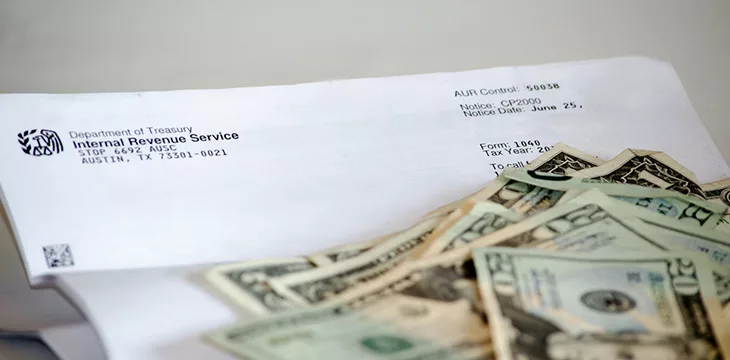|
Getting your Trinity Audio player ready...
|
Investors in the United States must include the value of their digital asset staking rewards as part of their gross income, the Internal Revenue Service (IRS) has ruled.
In its latest ruling, the tax agency says staking rewards become taxable when the taxpayer gains control over the assets.
“If a cash-method taxpayer stakes cryptocurrency native to a proof-of-stake blockchain and receives additional units of cryptocurrency as rewards when validation occurs, the fair market value of the validation rewards received is included in the taxpayer’s gross income in the taxable year in which the taxpayer gains dominion and control over the validation rewards,” the IRS said in its Revenue Ruling 2023-14.
The fair value of the rewards will be determined as of the date the investor gains control over the assets, IRS added. Investors will be subject to taxation whether they stake directly or through an exchange.
https://twitter.com/twobitidiot/status/1686114239558123520
Staking refers to locking up digital assets in a proof-of-stake network like Ethereum to secure the network and, in return, earn newly-minted tokens.
And while the IRS is now targeting staking rewards—including those earned through digital asset exchanges—the Securities and Exchange Commission (SEC) has gone after these exchanges for offering the service.
Earlier this year, the securities watchdog fined Kraken exchange $30 million for offering staking services. The exchange also agreed to halt the service for U.S. customers as part of the settlement.
Four months later, the watchdog went after Coinbase (NASDAQ: COIN) in connection with its staking-as-a-service program, which the SEC said offered investment contracts illegally.
Those opposed to the new tax say it’s unfairly singling out staking rewards, yet the IRS doesn’t apply the same principle to similar asset classes.
Jason Schwartz, a tax partner and digital assets head at New York-based law firm Fried Frank says that while the new ruling is unsurprising, “it’s still disappointing.” He believes that for income to be taxable, it must have a previous owner.
4/ By contrast, when taxpayers extract minerals, harvest crops, breed livestock, produce art or goods, or otherwise exercise dominion and control over property for which no previous owner exists, they aren't taxed until they sell the property.
— CryptoTaxGuy.ETH 🦇🔊🛡️ (@CryptoTaxGuyETH) July 31, 2023
“If newly minted tokens are more like newly extracted minerals than service [payments] or found treasure trove, they shouldn’t be taxed until sold. Blockchains are not tax “persons,” so they’re not payers,” he said.
Watch: Mapping the future of financial services on blockchain

 02-23-2026
02-23-2026 




